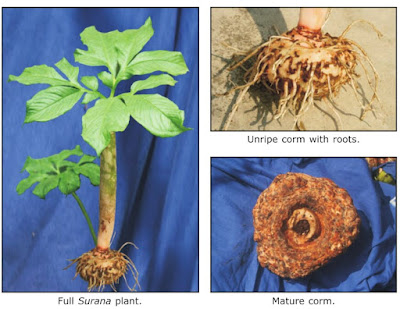Surana powder for piles (haemorrhoids)
Surana powder for piles (haemorrhoids)
Piles (haemorrhoids) are dilated veins within the anal canal. The precipitating causes of haemorrhoidal disease are chronic constipation, strain during defecation, sedentary life, pregnancy, chronic liver disease and abnormal bowel habits due to long-term use of low-fibre and fat-rich diet.
Piles may be internal, that is, above the internal anal sphincter or external, that is, below the sphincter; dry or with bleeding. The main and earliest symptom of piles is painless bleeding which is usually after and some times before defecation. Pain is not characteristic of haemorrhoids unless it is associated with infection, thrombosis or fissure-in-ano. Mucus discharge is a particular symptom of prolapsed haemorrhoids and anal itching may follow the discharge. Anaemia is seen in long-standing cases due to persistent and profuse bleeding.
Though piles are the most common cause of painless rectal
bleeding, it is important that rectal and anal cancer must be excluded by proper physical examination and investigation before the condition is treated as piles.
In Ayurveda, various drugs are mentioned to treat piles. Of these,
Surana powder is a simple herbal medicine which is frequently used for treating piles following certain life-style changes. The following do’s & don’ts are to be observed by patients with haemorrhoids:
Dosage form
Piles (haemorrhoids) are dilated veins within the anal canal. The precipitating causes of haemorrhoidal disease are chronic constipation, strain during defecation, sedentary life, pregnancy, chronic liver disease and abnormal bowel habits due to long-term use of low-fibre and fat-rich diet.
Piles may be internal, that is, above the internal anal sphincter or external, that is, below the sphincter; dry or with bleeding. The main and earliest symptom of piles is painless bleeding which is usually after and some times before defecation. Pain is not characteristic of haemorrhoids unless it is associated with infection, thrombosis or fissure-in-ano. Mucus discharge is a particular symptom of prolapsed haemorrhoids and anal itching may follow the discharge. Anaemia is seen in long-standing cases due to persistent and profuse bleeding.
Though piles are the most common cause of painless rectal
bleeding, it is important that rectal and anal cancer must be excluded by proper physical examination and investigation before the condition is treated as piles.
In Ayurveda, various drugs are mentioned to treat piles. Of these,
Surana powder is a simple herbal medicine which is frequently used for treating piles following certain life-style changes. The following do’s & don’ts are to be observed by patients with haemorrhoids:
- Avoid heavy foods, untimely meals and food items that cause constipation and indigestion.
- Old rice, barley, garlic, black pepper, lemon, gooseberry, and ginger and judicious use of medicinal beverages are beneficial in the patients with piles
- Regular use of goat’s milk and yoghurt is beneficial.
- Avoid overeating and dry and spicy foods.
Surana [Amorphophallus campanulatus (Roxb.) Blume.] Surana powder is a simple formulation made from dried corm of Amorphophallus campanulatus, a stout, herbaceous plant cultivated throughout the plains of India. This medicinal plant is named so owing to its ability to combat diseases like piles. Surana is mentioned in Ayurvedic Pharmacopoeia1 as well as the Ayurvedic Formulary of India2. Its daily use is considered beneficial in relieving piles.
Composition
Surana powder consists of finely powdered dried corm of Surana for oral use.
- English name = Elephant foot
- Latin name = Amorphophallus campanulatus (Roxb.) Blume.
- Family = Araceae
- Part used = Corm or rhizome
Main chemical constituents3
Betulinic acid, beta-sitosterol, stigmasterol, lupeol, glucose, galactose, rhamnose and xylose.
Quality standards3
Identity, purity and potency of Surana corm for its oral use are estimated on the basis of the following physical constants.
- Foreign matter = Not more than 1%
- Total ash = Not more than 8%
- Acid-insoluble ash = Not more than 2%
- Alcohol-soluble extractives = Not M T 3%
- Water-soluble extractives = Not M T 9%
Method of preparation
- Cut Surana corm into small pieces and dry them in sunlight or oven.
- Take 50 grams of dried pieces of Surana. Dry them further to remove moisture for easy powdering.
- Grind the corms in a grinder or pulverizer till fine powder is obtained.
- Filter the powder through 85 size mesh to remove coarse fibers and other particles.
- Keep the powder in a dry and air-tight food-grade plastic or glass container.
Dosage form
Creamish-grey fine powder.
Therapeutic properties4
Surana has carminative, appetizing, digestive and analgesic properties.
Dose and mode of administration
The dose of Surana powder for adults is 2 to 10 grams and for children 1 to 5 grams, twice daily to be swallowed with water.
Indications and uses
Surana is useful in piles, liver disorders, abdominal pain and constipation.
Precautions and safety aspects
- Raw Surana corm may cause itching which can be relieved by its antidotes such as lemon and tamarind taken orally.
- Hot, spicy, fried, sour, pungent, fat-rich and heavy foods should be avoided during medication with Surana.
- The patient should take plenty of water, properly cooked green vegetables, fruits and milk in daily diet.
- Straining during defecation should always be avoided.
- Diet should be soft and digestible and not causing constipation.
- It is not advisable for pregnant and nursing mothers to consume Surana.
References = Traditional Herbal Remedies for Primary Health Care









Leave a Comment